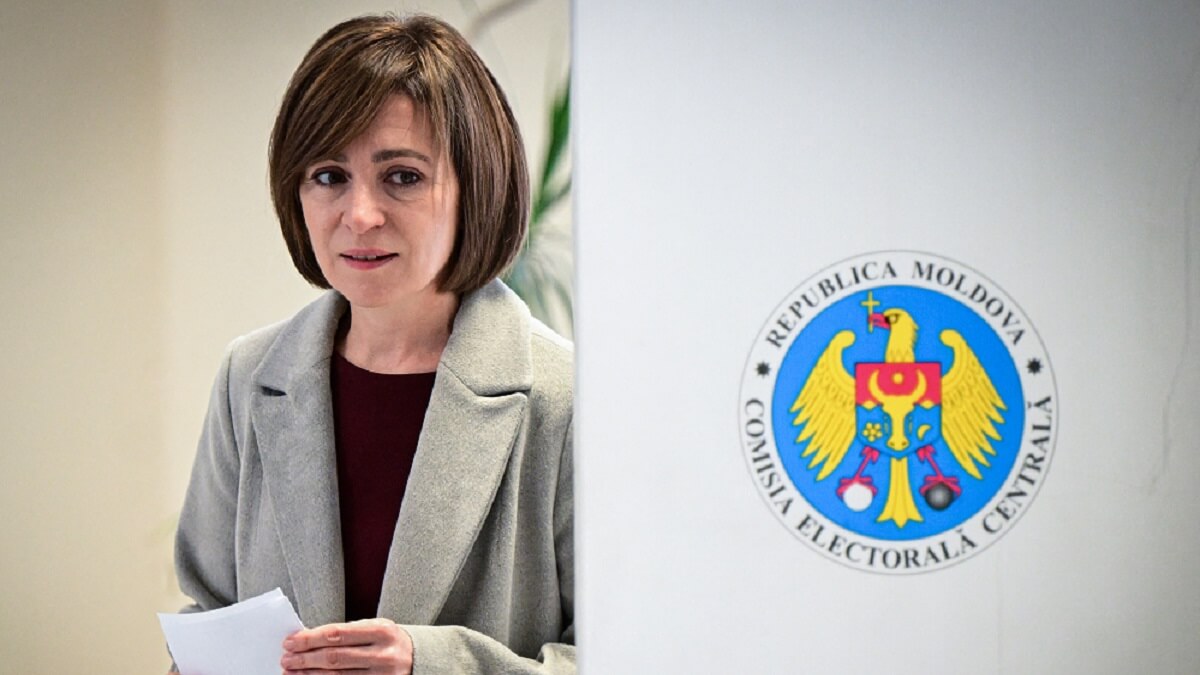The stakes were high. Moldova‘s destiny was at stake, in the words of its president, the very pro-European Maia Sandu; the European Union, its prestige, its attractiveness and its determination to defend its political, economic and social model; and Putin’s Russia, its determination to reclaim the shreds of its former Soviet empire.
The fact that Moldova won by only a few tenths of a percent (50.3 percent) the ‘yes’ vote for Moldova to inscribe its desire to join the EU in its constitution demonstrates the sheer division in the country.
When playing against President Vladimir Putin, arguments that a large part of the ‘no’ votes, i.e. pro-Russian votes, were bought with hard cash, ‘dirty money, disinformation and lies’, in Sandu’s words, are of little use.
Putin is playing with all possible means, legal or illegal, because after all his ultimate goal in Moldova is that it does not become yet another pro-EU – and pro-Ukrainian – symbol in Russia’s European war against the West.
All pre-referendum polls predicted a landslide victory for the pro-European option. Brussels had thrown its weight behind this tiny, poverty-stricken country of 2.6 million people and 1.2 million in its diaspora, mainly making a living in Italy, France and Spain.
In addition to having agreed on an aid package worth 1.8 billion euros over the next three years to improve its badly deteriorated infrastructure, Josep Borrell had been very forceful in denouncing Russian interference in the electoral process. Accusations corroborated by an election observation institution, Promo LEX, which noted that ‘several groups of voters had gone to the polls under payment of money in exchange for their support for some of the candidates in the race’. Joint sources of the daily Le Monde and the AFP news agency cite that ‘the police have carried out 350 investigations and made hundreds of arrests in recent months on charges of trying to disrupt the electoral process on behalf of Moscow.
‘An unprecedented system of vote-buying that could have tempted up to a quarter of the electorate’. The cost of all this would have cost [Moscow] around a hundred million dollars, according to estimates by the think tank WatchDog, also quoted by the media.
It is obvious that Maia Sandu was not among these pro-Russian sympathisers. Although he was far ahead in the first round of the presidential elections, it is by no means certain that he will be able to beat former Prosecutor General Alexander Stoianoglo of the Party of Socialists in the second and final round on 3 November, which would make him Putin’s candidate. If he were to win, Moldova’s European project would be stalled, at least until the general elections in 2025. Between now and then it is clear that the antagonism between pro-Europeans and pro-Russians will intensify. The latter are already well established in the separatist regions of Transnistria and Gagauzia, with which Moscow has carried out an operation similar to that carried out in Georgia with the autonomous regions of Abkhazia and South Ossetia, which have become autonomous republics supported by Russia against Tbilisi, and not very different from those carried out with the Ukrainian regions of Donetsk and Lugansk.
The EU cannot let Moldova go, any more than it can Ukraine. It would be the prelude to its explosion and would fulfil Putin’s undisguised ambitions to achieve, almost a century late, the ambition of the Georgian Iosif Vissarionovich Dzhugasvihli, better known as Stalin.
